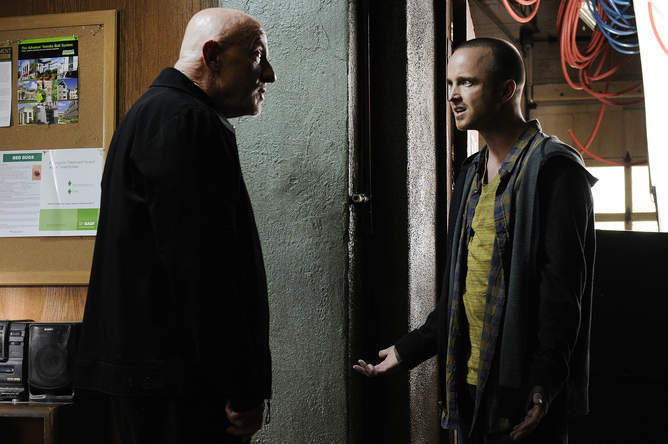
Warning: this article contains copious swearing.
Let me start with a confession: I swear. Not gratuitously, but once in a while it’s nice to let off steam with a well-placed “damnit” or two, when running against a door or crushing my fingers in a drawer. But I’ve noticed a trend to my swearing habits. After binge-watching Deadwood I have been known to intone “cocksuckers” with alarming frequency.
And for a while The Wire‘s “shiiiiiiiiiit” was a favourite.
But I don’t just swear. It’s worse: I study swearing.
Not just any swearing though. I’m interested in how TV characters swear. Recently I investigated some common American swear words in 38 TV episodes. I chose US TV series because they are so incredibly popular around the globe, meaning most of us are regularly exposed to American TV dialogue.
For this study, I used a broad definition of “swearing” so included words like “God”, “Jesus”, “Christ” and “Lord” if they were used in expressions such as “for God’s sake” or “oh dear Lord”. I included taboo words such as “piss” or “prick”. And I included variations – for example I included “goddamn” under “damn”, “ass-hole” under “ass”, “pissed-off” under “piss”, “son-of-a-bitch” under “bitch”. The F-word included a range of well-known variations such as “fucking”, “fucked up”, “motherfucker”, “fuck it”.
So what did I find? If we look at pure frequency, then “fuck”, “god”, “hell”, “ass”, “shit”, “damn”, “bitch”, “piss”, “crap”, and “screw” are the most frequent in my data.

But no need to panic. The 170 examples of the F-word in my data only occur in 10 of 38 episodes. That’s less than a third. Actually, only four swear words occur across at least half of the episodes analysed: “god”, “hell”, “damn”, and “ass”.
Thematically, words with religious origin are most frequent, then those that make reference to bodily excretions, sexual activity and a taboo body part. Of course such expressions have often lost their original meaning.

What TV series contains the most swear words or taboo expressions?
For this we need to consider the length of an episode: an episode of 45 minutes contains more dialogue than one of 25 minutes. There is, then, a higher chance for viewers to encounter such expressions. Taking this into account, the top five episodes in my data are from The Wire, True Blood, Entourage, Dexter, and Breaking Bad. All contain between about 10 to 20 swear words for every 1,000 words of dialogue.
But not all of the included swear words are offensive. Most of us would not have a problem with the expression “oh my God” – although a minority might consider it profane. So what does the picture look like when excluding all the words with religious origin?

The picture doesn’t actually change much: in relation to the amount of dialogue, the worst offenders are the episodes from The Wire, Entourage, True Blood, Dexter, Southland, Breaking Bad, The Shield , My Name is Earl, United States of Tara and In Treatment. Not surprisingly, many of these shows come to us from US cable channels HBO, Showtime, AMC and FX.
Those channels are not governed by the same regulations in the US as broadcast channels. They have much more freedom not just with language but also with nudity and sex, controversial subject matter and graphic violence. In contrast, my own research and that of Paulo Quaglio has shown that family-friendly shows such as Gilmore Girls or Friends won’t contain “shit” and “fuck”.
One reason the episode from My Name is Earl (NBC) makes it into the top-ten is simply because one character repeats “crap” three times for emphasis: “crap, crap, crap”. One episode cannot stand for a whole TV series, so we need to include more episodes per TV series, and the results might also change if different expressions are counted.
In TV dialogue these expressions are one way in which scriptwriters can be creative. For instance, lots of different words are combined with “ass” in my data to create adjectives such as “big-ass”, “creepy-ass”, “dumb-ass”, “kick-ass”, “lame-ass”, “shit-ass”, “short-ass”, “stupid-ass”, and even “fiend-ass”. They are also used to express a character’s personality – as is the case in The Big Bang Theory’s Sheldon’s “(oh) dear lord” and “(oh) good lord”.
They express characters’ emotions, their relationships to other characters and create realism. In her 2005 book Writing the TV Drama Series, scriptwriter Pamela Douglas tells the story of how HBO produced alternate dialogue for syndication. In these “clean” episodes, tough criminals ended up swearing about the “freakin” snow. I see this as unrealistic and undesirable for intelligent television.
I don’t believe swearing is inherently bad. It fulfils many important functions. But I’m not advocating swearing indiscriminately.
When we, rather than TV characters, swear we need to know when such language is appropriate and when not, when it’s friendly and jocular and when it’s hurtful and abusive.
After all, no-one likes a coc… well, you get the point.
![]() Monika Bednarek does not work for, consult to, own shares in or receive funding from any company or organisation that would benefit from this article, and has no relevant affiliations.
Monika Bednarek does not work for, consult to, own shares in or receive funding from any company or organisation that would benefit from this article, and has no relevant affiliations.
This article was originally published on The Conversation. Read the original article.




